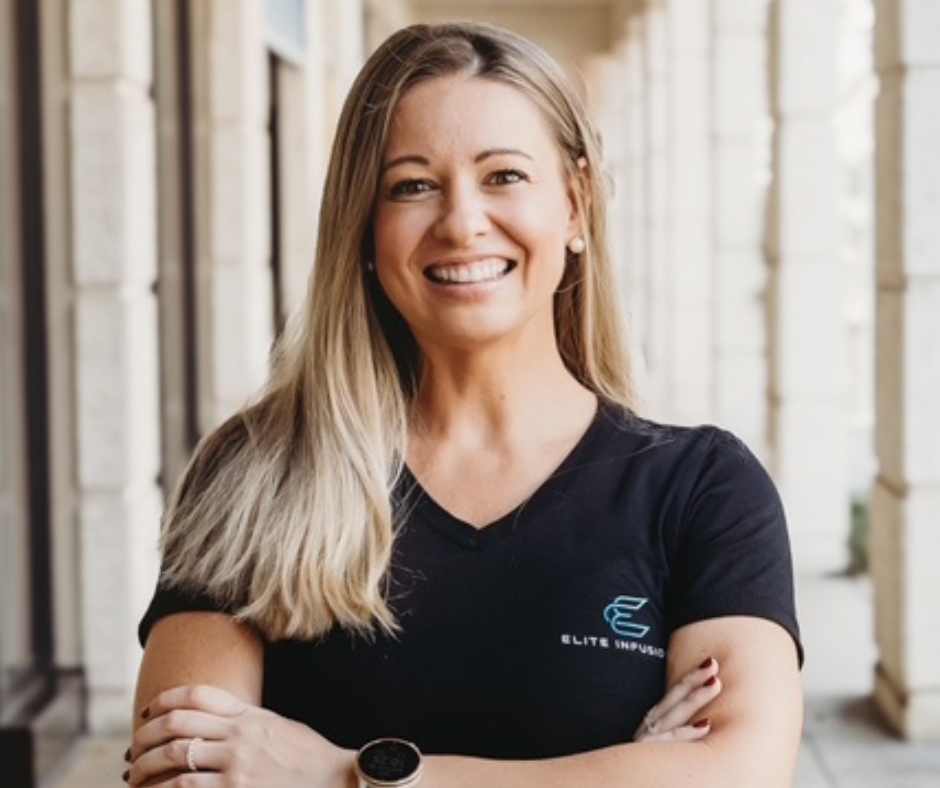
PBA experts who have been on the front lines fighting the pandemic lent their expertise to help the University community sort COVID-19 facts from fiction.
Professors from pharmacy, nursing and biology explained variants, vaccines and long-term effects of the virus during a nearly hour-long COVID-19 symposium in the DeSantis Family Chapel. The Lloyd L. Gregory School of Pharmacy, School of Nursing, School of Arts & Sciencesand new Physician Assistant Program hosted the symposium.
The panelists were:
- Dr. Elias Chahine, professor of pharmacy practice
- Dr. Erin Dorval, assistant professor of pharmacy practice; director of community pharmacy residency program
- Dr. Kristiann Dougherty, professor of biology
- Dr. Erenie Guirguis, associate professor of pharmacy practice
- Dr. Jennifer Kuretski, associate dean for graduate nursing
- Dr. Phil Tobin, founding director of the physician associate program
- Dr. Jay Jackson, assistant professor of pharmacy practice and assistant dean for students, moderated the panel.
The prevalence of the Delta variant and the efficacy of vaccines were common topics throughout the forum. At the beginning of the pandemic, senior adults and adults with medical conditions were hospitalized. Now, the majority of patients who are hospitalized are those who were not vaccinated or who were only partially vaccinated, Chahine said. In addition to his role at PBA, Chahine is a clinical pharmacist specialist at Wellington Regional Medical Center working with patients with COVID-19.
“We are seeing younger patients and the ones who have not received the vaccine yet,” Chahine said.
The highly-infectious Delta variant is to blame for a rise in numbers, but the vaccine is still “very protective,” Chahine said.
Dougherty explained the variants, which occur when viruses change over time through random mutations in their genetic material. While some changes may be neutral and some may render the virus inactive, others may make the virus more contagious. That’s what happened with the Delta variant, she said.
One person asked: Are the vaccines effective? If I’m young and healthy and it’s very unlikely that I will die of COVID, why do I need the vaccine?
Chahine said all three of the vaccines available in the U.S. — Pfizer, Moderna and Johnson & Johnson — are very effective, as are the vaccines used abroad. Even young and healthy people have good reason to get vaccinated, he said: “You don’t know whether you’re going to end up in the hospital. That’s No. 1,” Chahine said. “No. 2, the vaccine will reduce the risk of complications. No. 3 is the vaccine will prevent transmission,” or passing the virus on to others, he said.
Guirguis said medical professionals are seeing more young people admitted to the hospital than they were last summer. Some of those young patients are intubated and need some form of life support in the ICU, she said. Even people who have only mild cases of COVID-19 are at risk of blood clots several weeks or a month after getting the virus, she said.
“Blood clots are a real concern, even in younger patients,” Gurguis said. Some people also complain of chronic fatigue or brain fog.
Navigating Misinformation
A student posed a question many have been asking: How do you know whether what you see on the news and social media is true?
Chahine recommended going straight to the sources: The Centers for Disease Control & Prevention, World Health Organization, Infectious Diseases Society of America and National Institutes of Health and governmental or educational websites, indicated with a URL ending in .gov or .edu. PBA posts its COVID-19 information on the Sailfish Safe page. Chahine advised checking the news and social media against those reputable sources before reacting.
Jackson said he and the other panelists have been fielding more questions than ever from family members, friends and people in their churches.
“As you’re hearing this information, if you’re not a medical professional yourself, talk to someone who is — someone who you know, someone who you trust and someone who knows you and your specific factors,” Jackson advised.
Dorval recommended checking the CDC’s patient information and asking your healthcare provider directly.
“Vaccine hesitancy is real, and I’m happy to answer questions and reassure and give you the information to make an informed decision,” she said.
Vaccine Side Effects
Another person asked how commonly the practitioners saw adverse effects when administering the vaccine. Dorval said a reaction at the injection site is common.
“The patient’s arm feels like they got punched. A lot of times, patients complain about headaches, fever and body aches,” Dorval said, noting that after a day or two, patients are back to normal.
More severe allergic reactions such as hives or throat swelling are rare, Dorval said. Atlantis Pharmacy, where Dorval practices, vaccinated nearly 6,000 people, and she hasn’t seen one such reaction, she said. She monitors patients for 15 to 20 minutes after they receive the vaccine, and for as long as 30 minutes if they’ve had reactions to other injections in the past.
Tobin recounted a similar experience. When patients experience aches like the ones that Dorval described, it’s a good sign, he said.
“You know that you’re getting that immune response and that the vaccine is working,” Tobin said. “The vaccine is doing what it should be doing. In a day or two, you will recover and be just fine.”
Getting Back to Normal
Although Kuretski did not administer the vaccine, she counseled many of her patients to get it. Often, those who were fearful came back and said, “Oh, it really wasn’t that bad,” Kuretski said.
Guirguis stressed the importance of reducing the burden on hospitals and healthcare providers. Patients are still coming to the hospital with heart attacks and other non-COVID emergencies, and they also deserve quality care, she said.
“If everybody plays their part in preventing infection spread, we’re going to be in a better place,” Guirguis said.


